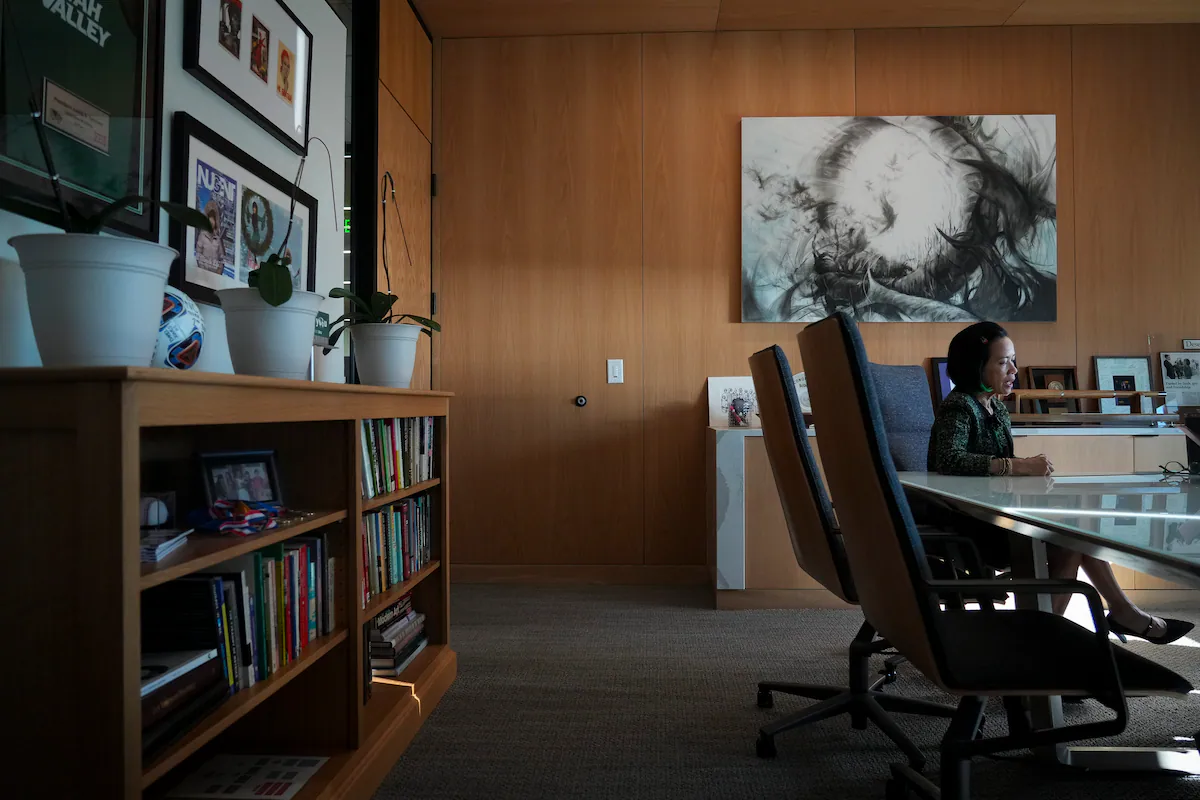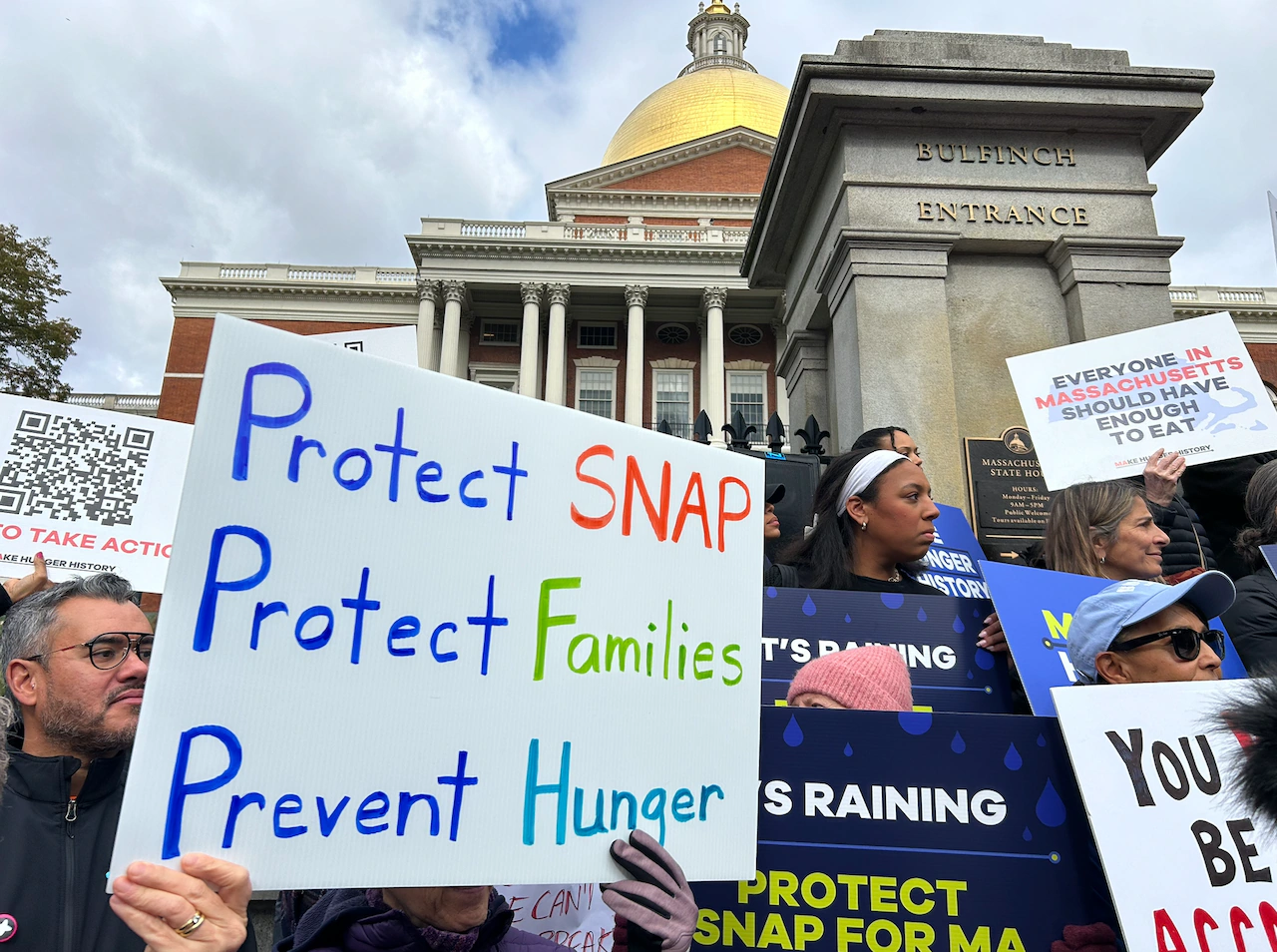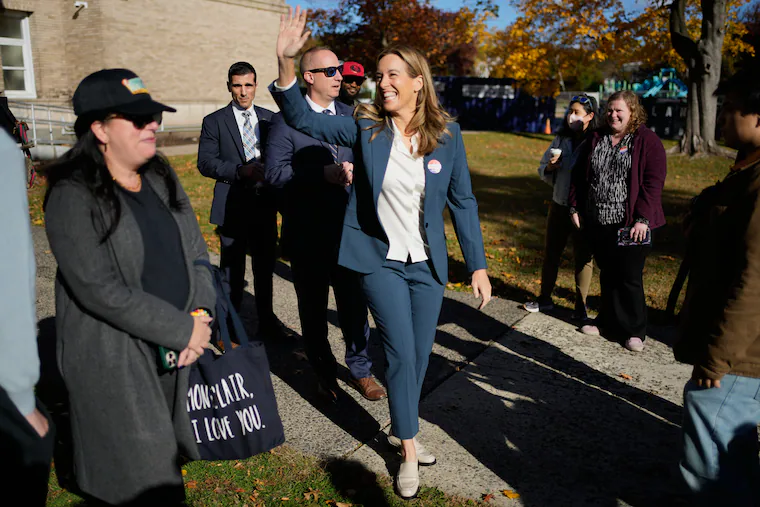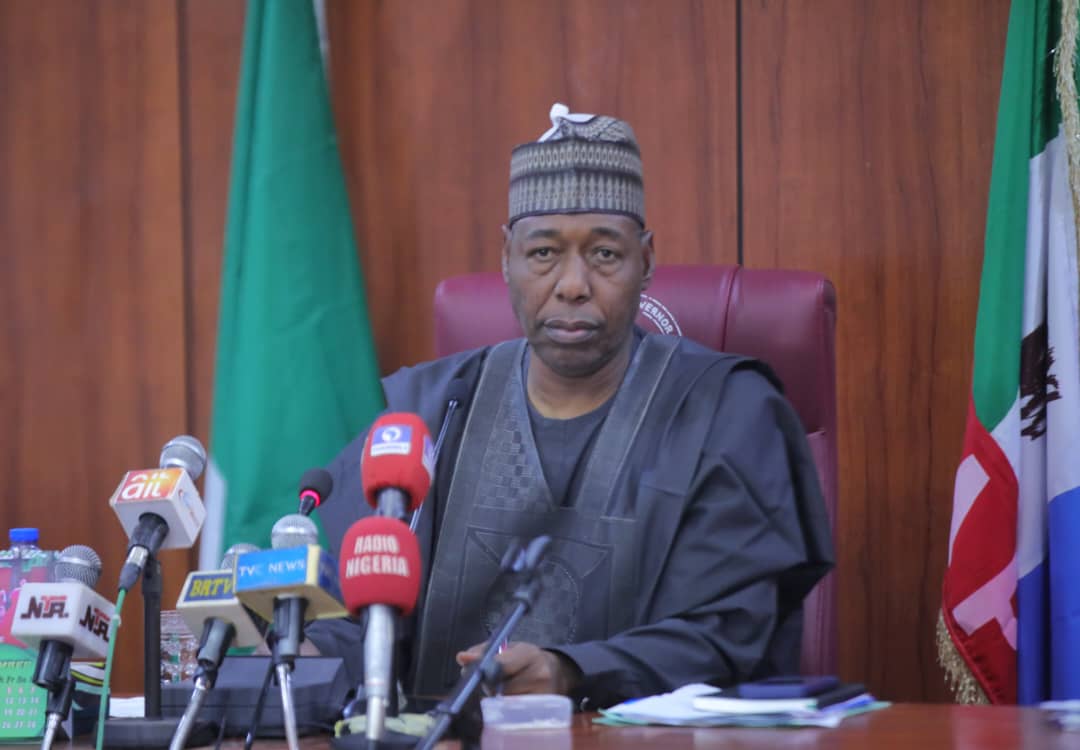Copyright Salt Lake Tribune

It’s been nearly two months since Charlie Kirk’s killing rattled Utah Valley University and the nation turned its eyes to the campusfew were familiar with outside Utah. The Salt Lake Tribune sat down with university President Astrid Tuminez to talk about how she has directed the school’s response, dealt with the attention, heard criticisms over security and tried to support students and staff. The shooting also came at time when Tuminez was grieving her late husband. She spoke of balancing her role and her health, including going to therapy and encouraging others to ask for help. Here is that interview, lightly edited for clarity and length. How has the shooting altered campus? What kind of mark does something of this magnitude leave? It is something spectacular to see your university suddenly thrust into not only the national consciousness, but international. ... For Utah Valley University, as president, to see my campus everywhere, with these circumstances, I think it’s also created interesting conversations about where we are today on safety on campuses, or freedom of expression, or student resilience, or care and mental health. There have been criticisms since the shooting about UVU’s police response. What is your response to that? And what has the school changed about its policing in the aftermath? They’re very valid questions, and they’re important questions. Because there is an ongoing assessment — this third party assessment, which is what’s usually done in these cases. It is very important to have the patience to wait for that comprehensive, deep analysis by a third party in order to understand all aspects of security. As a university, we’re also coordinating with a criminal investigation and prosecution, so all of that must play out. In the immediate aftermath of Charlie Kirk’s shooting, our priority here was to secure campus and have students, staff and faculty who were here, to have them be safe. I’m sure you’re very familiar with the increased presence of law enforcement on campus; that is still ongoing. And the situation is fluid. Our responsibility is to make sure that security and law enforcement continue to be a priority. I think that it’s very important to highlight that what happened at UVU is not just a UVU matter, but it is a matter for the Utah System of Higher Education and campuses and colleges throughout the country. The Utah System of Higher Education announced its own security task force. There will be legislative participation in that. What they learn and what we learn, I think all of that will be put together and will be made public. I think it will inform a new normal. UVU is currently going through the process of examining its budget to make legislative funding requests. Will that include asking for more money for security or policing? Absolutely. I think that before you ask for money you need to know why you are asking for money, what is the strategy. It will go beyond UVU; I think it will be the entire Utah System of Higher Education. UVU has not detailed whether other law enforcement agencies were involved with overseeing the Charlie Kirk event. Did the school alert others ahead of time or ask for help? I know you want an answer to all of that, but I think that’s one of the questions that the investigation will answer. Those [answers] will have implications for going forward, how you triage events. What has been really good here at UVU is you’ve actually had an examination of what is a major event. And what we are doing now is adding additional personnel or adding technology, like metal detectors, for a certain threshold of an event. You have to look at the nature of it — whether it’s internal or external — in that exercise of looking at events, planning for security. You don’t want to end events. We did, in fact, cancel events in the two weeks immediately after Sept. 10. But we are in the business of education. We are in the business of debate and discourse and speakers and seminars. And we are a place for the community. It’s really been looking at how we look at our events and how we assess them. … You don’t want to take away the best parts of being a university. You mentioned new thresholds for events on campus. What does that look like? We originally had a threshold of 500 [attendees to require metal detectors]. … We lowered that to 250. But some quality of judgment is needed for that, so [there are] not really hard and fast rules. When you need metal detectors, additional staffing, it’s both the numbers and — what is this event? You have to ask qualitative questions. What has been the most difficult part in the aftermath of the shooting? What does the campus still need moving forward? There are so many most difficult parts. I think in the immediate aftermath, [it was] securing campus and returning to campus and returning confidence. Part two is the healing aspect. And then part three is empowering people. There are, of course, junctures that you feel. Emotions are running so high, like [holding a campus] vigil. I was so proud of that vigil, especially seeing the students. You realize it’s not about me at all or you — it’s about them. They have a level of maturity and kindness and resilience and profound insight that was just so incredibly reassuring. You have many emotions — where people want you to do X, or Y, or Z — and the issue of balancing all of that, acknowledging that all of those feelings are valid and all the political opinions are valid to everybody who has them. But [it’s about] being able to find middle ground for agreement and unity, because our students talk about the necessity for conversation. We are still in one school. We are still in one community. We are still in one state. I think that part is really important. We also created a memorial committee, because so many members of our community want a way to honor or remember. Those opinions are also very diverse. Having a memorial committee co-chaired by the chairman of the board of trustees at UVU and the Utah Board of Higher Education — and including legislators, students and other leaders — I think that’s a great method to have a dialogue. In essence, you may need to have some hard conversations. But I think that’s a way to reach a decision that we could be proud of. Personally, for me, I also have to manage my own mental and emotional well-being. And I’m very grateful I have a cabinet. It’s really, really hard work, but [important] being able to discuss things, being thorough. As The Tribune has reported, university presidents in Utah face a lot of competing demands. How do you balance that? Who do you answer to first? Listening is very important — listening and validating. I think it begins with validating emotions from students, staff and faculty. … I have this initiative called “Our Better Selves for a Better America.” And I’m really bullish about it. I think long term, to me, this is the answer. A good chunk of my career was spent in conflict prevention in the southern Philippines, in peace negotiations between the government and the Muslim minority; and in Russia, [with] Chechens and the Russians. ... “Our Better Selves,” this initiative, takes what UVU is already doing and adding new elements, and partnering with outside partners to really do three things. One is: enhance the academic certifications here in areas like mediation, negotiation, civics. The second is a set of activities that involve conferences we’re already doing, like the J. Bonner Ritchie Peace Conference, the Healing Conversations Conference. ... And then the third bucket is skills: How do you have hard conversations? How do you disagree without having contempt for the other side? We’re working with the Heravi Peace Institute at Utah State University, with the Disagree Better [initiative] here in Utah. ... It is really thinking hard about what do you make of this moment. How do we find our better selves for a better Utah and a better America? I think it’s a very serious question. There’s nothing performative about it. I think it’s a very operational question. ... Talking and disagreeing and negotiating and mediating, it’s not academic; it actually helps you with your job, with your marriage, with your colleagues. Let’s take a small detour: What lessons from your past work in global conflict resolution are you applying to this situation? When I first went to the Philippines [for work], this was maybe 2003. I was raised [there as] a Catholic Christian Filipino. I had never been to the south, where the Muslims had lived for centuries. Islam had come to the country before Catholicism. And I was raised as prejudiced as everyone else. I thought if your name was Abdul or Muhammad that something must be wrong with you. When I was asked to do the job, it was an initiative of the White House of President [George] W. Bush and [Philippines] President Gloria Macapagal Arroyo. When I went there, I had a very New Yorker, American mindset. And I went to these remote villages, jungles. I just thought ... “I’m going to speak to the guerrillas. I’m going to speak to the government. I’m going to speak with the NGOs.” And it was a failure, my first few months, because 1), everyone thought I was CIA. And 2), they sent a cable to Manila (the capital of the Philippines) asking, “Who is this woman? What planet is she from?” That’s a true story. It was so humbling for me, because I was a New Yorker, and I forgot my own people. You know what we need as Filipinos? We love to eat. We love to have snacks. People love when you can just sit under a tree and just not rush. It was a very quick learning experience for me. So the human connection is one of the very first lessons. The second lesson for me is: Doors will shut in your face, and you have to be really creative. People have grievances that go way back. When we couldn’t address some issues directly, I actually went kind of obliquely. I invited the chief from the Pawnee Nation; I invited people from Sri Lanka, from the awful, awful conflict; and somebody from Northern Ireland. I wanted the Muslims — the Moros — and the Philippine government side, as well, to know they were not the only ones to have ever encountered grievances and violence. And then the third lesson is to look inside at the resources in your face. As I see here at UVU, there are resources in our face with “For Our Better Selves.” The history of the [Moros] people themselves — there are 11 ethnolinguistic groups, and sometimes they killed each other more than they killed soldiers. [I was] having them look at their own history; I began working with 24- to 40-year-olds, fellow Muslims who had never talked to each other. They would weep at these sessions that I organized. … It was such a powerful experience. ... We funded comic books, so that children could read comic books about the proud Muslim history. And we funded radio programs. It was one of the most meaningful things I ever did, and I did it over four years. It also made me rediscover my heritage. Being Filipino didn’t just mean the Catholic Philippines. ... I went to the Islamic city of Marawi, where there as a huge war a few years ago. I was the first American, and I brought an embassy officer to traverse many, many miles. My Muslim friends said, ‘We’ll protect you.’ When we arrived at the Islamic city of Marawi, 70 of these NGO leaders, they cried when they saw me. I said, “Why are you crying?” They said, “We have never had anyone come here to talk to peace without bringing 150 armed guards.” They were so moved by it. I think peace requires some risk-taking. I think even healing for us here also requires some risk-taking. We should be prepared to take the risk of listening to someone we don’t want to. This has been a difficult year for you personally after the death of your husband. How are you navigating that? I’m not going to cry today — or maybe I will. It’s hard. Leadership is hard, anyway, and when hard, personal things happen to you, it is so much harder. But you also have to ask: What is this moment needing from me? And you have to lean on your colleagues, lean on your community, lean on your faith — my faith is very eclectic. The personal journey is really hard, and then Charlie Kirk happens, and that’s just another trauma piled on top of trauma. I’ve been open about it. I’ve said to students, “All these feelings are valid. You have to embrace them. There’s no shame in grief. Grief is heavy. There’s no shame in getting help.” I do a lot of therapy. I do a ton of therapy. And it’s the first time in my life that I am doing that. And I joke about my four human therapists and my ChatGPT, and they’re all therapists. My daughter, who’s a somatic coach, tells me, “Mom, be careful with ChatGPT.” So [I’ve been] asking for help, because we are humans. It doesn’t matter how strong we think we are. It doesn’t matter how capable we think we are. I think it is the nature of life that we will be blindsided by trauma and darkness. That’s what life is about. I also think of Erika Kirk, and I feel deeply for her. I mean that so deeply. I feel for her because I can remember those first few months. ... Seriously, I know I’m a little strange, but I bought this little sauna, and I talk to God in there. I think that’s important. Everybody has to know: How do you navigate life’s hardest moments? You could be someone who believes in God or doesn’t believe in God; you could be a pure materialist. But at some point, life is going to ask you. For me, I journal a lot. I’ve probably filled maybe 10 notebooks. And I’ve bought maybe over 100 books in the last eight months. I am reading like crazy. And I hope students here also take that skill of reading, because when something happens to you, there’s already been something written about it. It could be fiction, poetry. It could be social science, literature. There’s many ways, I think, to love ourselves and to give grace to ourselves — even if we are finding ourselves in the deepest darkness that we never contemplated. To me, that’s just real. I think if you talk to other people and their experiences, they might share the same thing. ... I’ve been really good at exercise, and that helps. And therapy — get help. It’s too big to shoulder without help. There has been a lot of pressure lately on higher education, including eliminating diversity programs and major budget cuts. How does UVU move forward? The reason I applied for this job was actually because UVU is the antithesis of all the universities I’ve been at. ... The attacks on higher education, they are real. Some of it’s valid. And some of it’s unfortunate. I think we need better conversations, because I do believe if you look at the historical period from the end of World World II, universities have been a true pillar of the economic, social, innovative strength of America. This is a university where 41% of our students are first to attempt college. We are almost 20% students of color. And nearly 75% work while going to school. Just think of the statistics I mentioned: This is the antithesis. I went to Harvard, MIT, BYU; I was a visiting scholar at Columbia, at University of Hong Kong. And I was a founding vice dean of research at the National University of Singapore for the Lee Kuan Yew School of Public Policy. How we navigate this is 1) better conversations. No. 2, [it’s] looking at data at these universities and the value they actually provide. It’s partly a degree, but also partly the human and social experience. That’s why I’ve defended the humanities. ... No. 3, I think, is maybe a little more philosophical: We need to keep our faith in human potential, whether the person was a 4.0 or 1.6 [GPA] in high school, or from rural or urban [communities], or whatever their ethnic or sexual orientation is, or whether they’re a 50-year-old mom or an 18-year-old freshman. I think one of our biggest mistakes is writing off human potential. I speak from my life, because I came from the slums. You all know my history. I could have been easily written off by everybody. ... I think Utah should be congratulated, first of all, and celebrated for the fact that our Legislature still supports higher education as a percentage of the budget of every university and college in this state. It’s still quite generous. The budget cuts and the reallocations, I welcomed it as an exercise to review our efficiency and to validate our programs. It’s led to good, honest conversations. What programs should we discontinue? What programs should we launch? As you know, UVU has a big focus on applied AI right now. I think every time there’s a challenge, if we could turn that into a constructive operational conversation, there could be wins for the universities, the Legislature and the state. The common language that we have is to keep Utah vibrant. You are the longest serving public president in the state right now, with a tenure that started in 2018. Meanwhile, Utah has seen massive turnover in higher education leadership. How do you manage your role? And what are your plans for the future? It’s kind of wild. Can you believe it? Seven years. ... I wish I knew my plans for the future. Everybody would like to know. It is incredible when I think about me being the longest serving president in the Utah System of Higher Education. Utah was not in my life plan, but I am truly, deeply and sincerely grateful. This is seven years and one month now. I embraced this challenge of higher education, truly embraced it — truly embraced the mission that we formulated to educate every student for success in work and life. ... Being the longest serving [president], there have been a lot of lessons. There have been ups and down. But it’s just been so exciting. In 2019, my first commencement, we had fewer than 6,000 graduates. In April 2025, we have 12,600 graduates — more than double. To me, that’s remarkable. If you see the number of buildings we have built, including the bridge across [Interstate]-15 that thousands use every day, we have changed the quality of the student experience. And for a university that charges $6,000 a year in tuition — and from here you can go to Harvard, Yale, Oxford, Cambridge, MIT. That is a remarkable story. Actually, I think that’s how higher education should be. Not to say that we don’t need the extremely selective universities. But I think more broadly, if you were to think of higher education as a tool, we should have more institutions like this. You’ve previously said you drink a lot of green tea and listen to Taylor Swift to keep up your energy. Have you added anything new to the routine? I listen to Chappell Roan now. I still listen to Taylor Swift. And I still drink a lot of tea. I listen to a lot of gospel music. I used to think of gospel music as like, sappy and cheesy, but there’s actually a lot of really good, poetic, rock gospel music. And at [this] time in my life, I feel like I truly need grace more — I mean that 100% — and I need to know I’m not alone. I am obsessing over gospel rock music. There’s a group in Australia called Hillsong. I strongly urge you to listen to them. Their music is so good, and the words are so good. Anything else you’d like to add? As hard as everything has been, one of the things that I’ve really reflected upon deeply and journaled a lot about in the past eight months is — and I hope it doesn’t sound like a cliché — but often from ... darkness something awaits to be born. With death, there’s always a rebirth. With winter, there’s always spring. I think we need to feel and experience these things slowly. I think that’s a good thought for this year with everything we’ve discussed.



